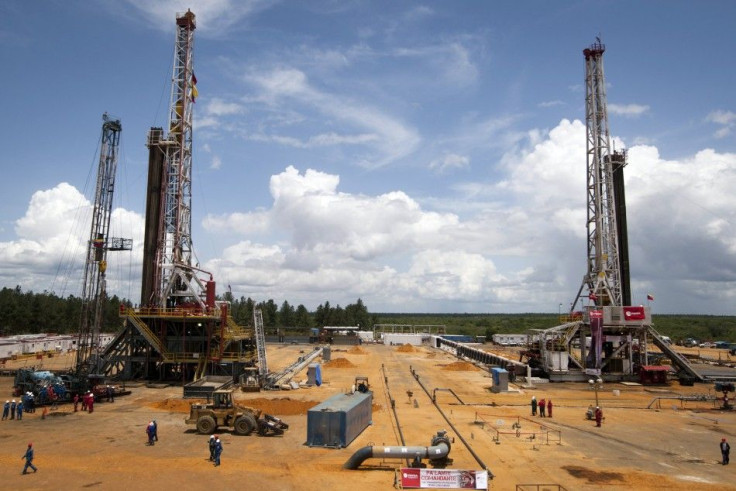Brent Crude Holds at $110

Brent crude steadied around $110 a barrel Thursday, boosted by reduced U.S. crude stocks and positive manufacturing data but countered by economic growth uncertainties.
A speech on Friday by Federal Reserve Chairman Ben Bernanke looks set to be the main event of the week for all markets, as investors wait to see if he will talk about more stimulus for the faltering U.S. economy.
U.S. crude stockpiles fell 2.21 million barrels to 351.77 million barrels last week, data from the Energy Information Administration showed, against a forecast for an 800,000 barrel build.
At 12:59 a.m. EDT, Brent crude was up 2 cents at $110.17 a barrel, while U.S. crude was down 11 cents to $85.05 a barrel.
The WTI-Brent crude spread was slightly above $25.00
The market had expected crude stocks to build but the report showed a drop in stocks, Singapore-based Victor Shum of energy consulting firm Purvin & Gertz told Reuters.
That surprised the market, even though, directionally the results from the DOE for crude were consistent with the earlier API report.
Positive U.S. economic data in the form of a 4 percent jump in durable goods orders in July bolstered sentiment. The rise was double economists' expectations.
Durable goods are for items from toasters to aircraft meant to last three years or more.
We like the economic news and EIA weekly data received recently and think that they suggest that the second half economic rebound may still be a possibility, said MF Global in its daily report.
Reuters' market analyst for commodities and energy technicals Wang Tao said that U.S. oil is technically neutral in a range of $84.55-$86.39 per barrel.
UNCERTAINTIES PERSIST
Investors' confidence that Bernanke will use his Jackson Hole, Wyo., speech to talk about further stimulus seemed to be wavering.
There was some earlier euphoria about Bernanke announcing some quantitative easing measures, but in my opinion that is more wishful thinking, said Shum.
Bernanke will likely say something supportive, but likely there won't be much clarity on it.
The oil market also continues to be buffeted by developments in North Africa and the Middle East.
European Union governments are likely to adopt an embargo against imports of Syrian oil by the end of next week, as they move to ratchet up pressure on President Bashar al-Assad, EU diplomats said on Wednesday.
The EU already has sanctions against dozens of Syrian officials and several state entities but it has taken incremental steps in broadening its measures, with some states concerned about risking commercial interests in Syria.
The situation in Libya remains tense, with Moammar Gadhafi nowhere to be found.
What will be critical for oil markets is how quickly the country's production can return to pre-conflict levels of around 1.6 million barrels per day.
Rebel authorities on Wednesday called on oil workers to return to the Ras Lanuf and Brega oil terminals in the east of the country, which they gained control of earlier this week.
(Reporting by Seng Li Peng; Editing by Himani Sarkar)
© Copyright Thomson Reuters 2024. All rights reserved.





















